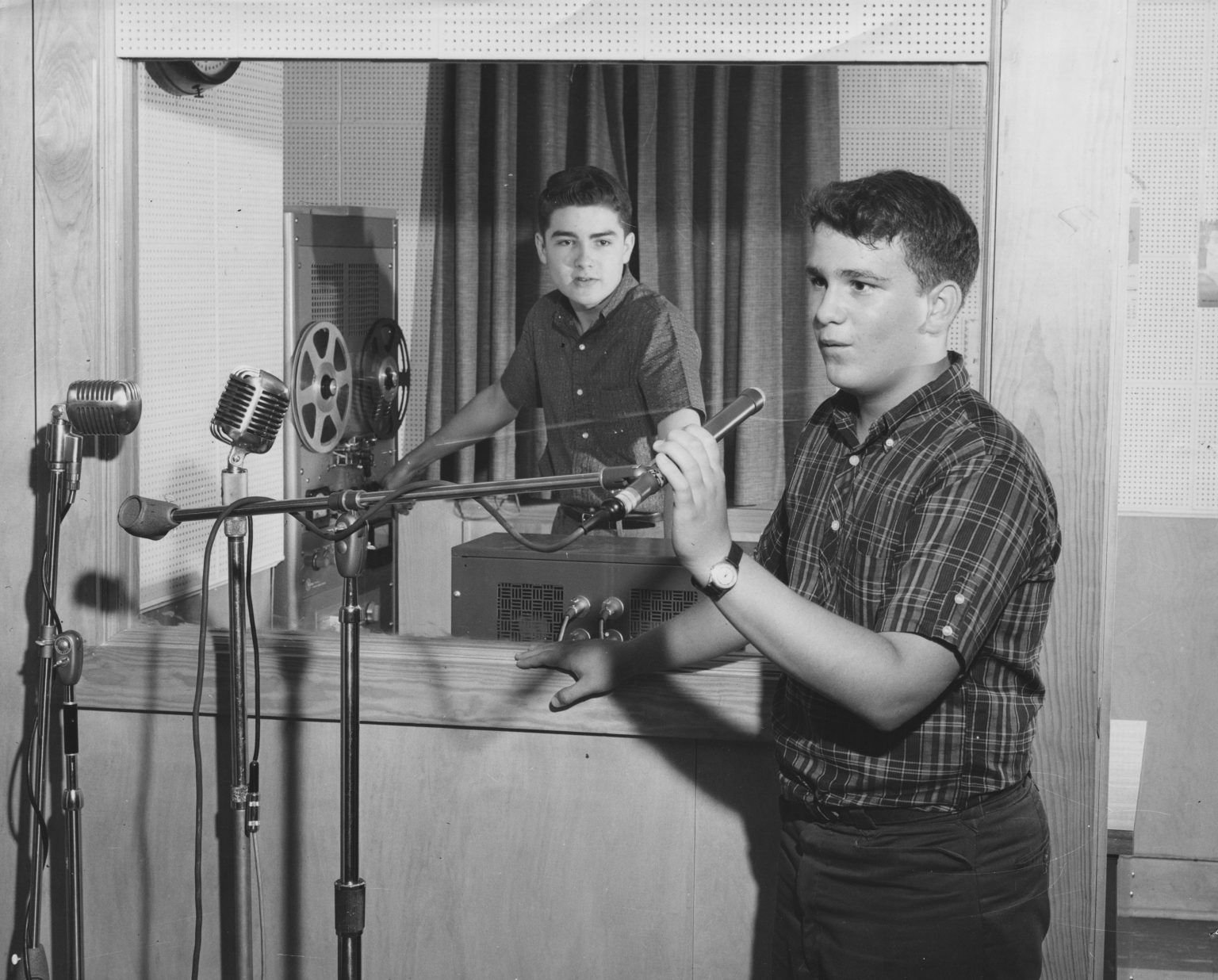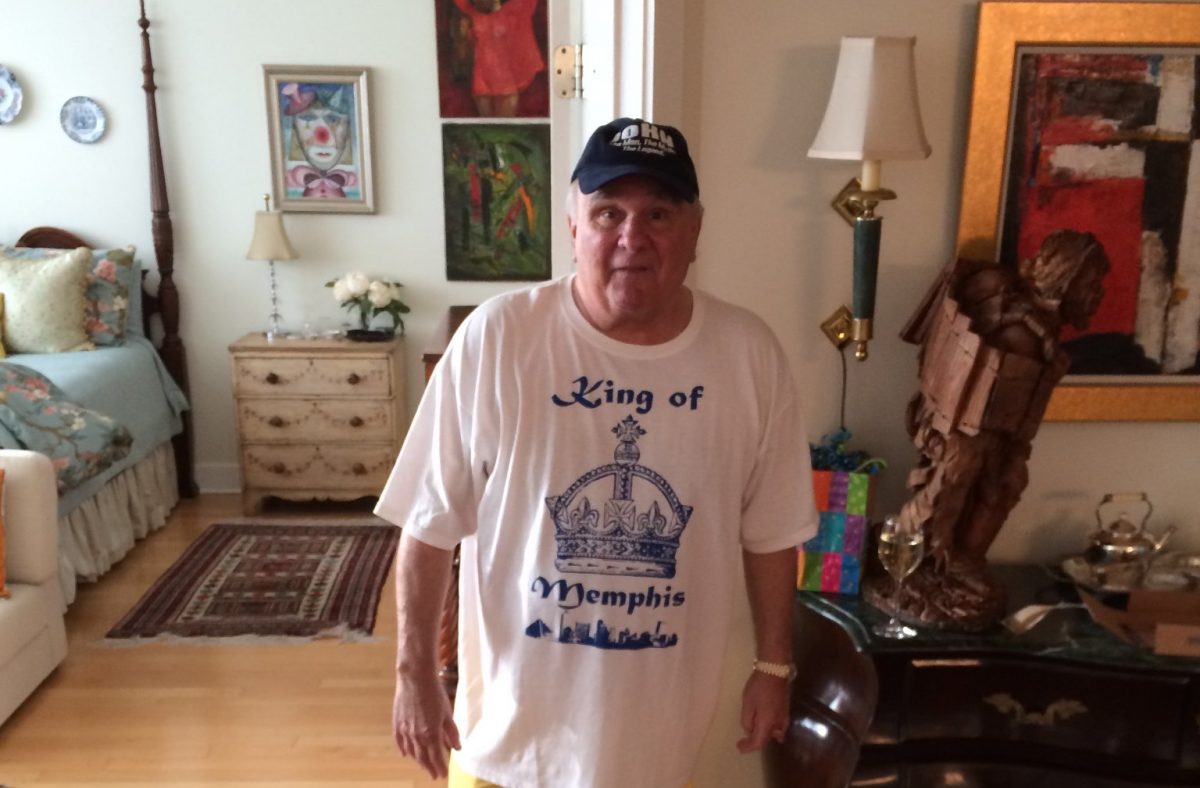This week’s cover story, The Vinyl Countdown, came out just as the city was reeling from the news of John King’s death at the age of 78. Sherman Willmott, who knew King well and helped create the Memphis Listening Lab last year on the strength of King’s thousands of records, CDs, and music-themed books, wrote on Facebook at the time:
Not going to lie. This one hurts. I’ve met so many great people in the music biz, but John King is Tops of the Pops. Huge loss for Memphis and a big loss personally. One of a kind person, always funny and so anti-cool, he’s too cool. Truly the Spirit of Memphis like Bowlegs Miller or Jim Spake — guys who get stuff done behind the scenes in a quality way and aren’t superstars but make things shake, rattle, & roll … defining exactly what people actually love about Memphis. Godspeed to the King of Memphis!
Indeed, King was a pivotal player in the city during its musical zenith, as a promoter, program director, and studio owner, having initially co-founded Ardent Studios with fellow teens John Fry and Fred Smith in 1959. I reached out to Willmott to hear more of his thoughts on the King of Memphis, the man who collected it all, John King.

Memphis Flyer: John’s career was multi-faceted. He saw the Memphis music business from a lot of sides, wouldn’t you say?
Sherman Willmott: Oh definitely. From the little stories he would tell, his whole life was fascinating from the beginning, when they were kids, getting into rock and roll just as it was starting. He grew up with rock and roll, chasing the records. Whether it was him taking the bus downtown to Home of the Blues record shop on Beale, or later with Terry Manning and their buddies getting on the phone to call in mail orders of Beatles records from England. He was very aggressive and determined to get whatever it was he was searching for. And that paid off with his incredible collection.
His work as a record promoter also fed into that.
To me, some of the most interesting tales he would tell were from when he went on the road with the Stax PR people, or the radio people, and they’d go into mostly African American stations. John of course was the token white guy, pushing the rock and roll stuff, but he loved all the music. He particularly loved the hustle and working with the DJs and A&R guys and promo men. That to me is fascinating. It’s like that book, Hit Men. About how you actually got records played. John lived that life. And he lived a life of no regrets.
And one reason he did it was that [Stax president] Al Bell really took him under his wing. So he had an entrée into that world, because of Stax and their muscle. The Stax promotional team was great, with Deanie Parker and those folks. John may have not had an office at Stax, but he certainly knew everyone there. They were friends. There was a lot of overlap between John, Stax, and Ardent.
And he was like a kid in a candy shop. They had worked in radio as teenagers, but to visit stations in a city like Philadelphia was a whole other level. He was pushing records, but I’m sure it wasn’t “pushing” to him; he was just talking passionately about some record they were promoting. Of course, he also would have a tip sheet, and that was another way he had a reciprocal relationship. He would promote other people’s records, and that was a way for him to stay on top of things and get more records for himself, which was a perk.
His collecting covered a lot of genres, didn’t it?
He liked everything, and he had really good taste. So he was getting other people’s new releases, at a time when there was so much great music coming out in every genre. His timing in life couldn’t have been better, I think.
What had he been doing in more recent years?
He always had his hand in the music business. But once the Ardent label went on the shelf for a while (because it never really shut down completely), and Stax went out of business, people in the music business here either went to L.A. or Nashville, generally. Or they fought over the scraps that were left, in the “Disco Duck” era, when studios weren’t as busy. From 1967 to the early ’70s, when American and Stax were going, and Elvis was recording in town, and everyone from Paul Revere and the Raiders to Ronny Milsap to Dan Penn was here, Memphis was on top of its game. If you were there for that, and the rug got pulled out from under you around 1975, it’s like being at the club at three in the morning when the lights come on. It’s time to go somewhere else. I think there was a lot of that in general. And I think John moved around a bit, but he never completely got out of music promoting. It was his passion. He never stopped collecting.
In his collection, there’s a lot of stuff from the ’80s on 12″, when hip hop and dance music was starting to take off. And you wouldn’t think he’d be a big dance music guy, so that was a weird part of the collection. But I think he took whatever was happening in the music business.
I think the big turn for him was in 2000, or the late ’90s, when he started getting into internet radio. I think at that point he was formulating a game plan for what to do with his collection, and that was to make programs for this station, Tiger Radio. And he collected all these yearbooks and phone books and old radio clips and ads. What he wanted to do was make each internet radio show focus on a specific date. Like, April, 1967. And he wanted to pick out people in the yearbooks and talk about them going to a specific dance to see a band. That’s how into it he was. He would play the ads from that year along with the songs. When I met John, that’s what he was into. He basically had his own massive radio station and library, and all the things you needed to do an old school radio show.
So he’d sit there with selections from his collection and digitally record internet radio shows?
Yep, he was one of the first into broadcasting music online. And he had all formats: records, CDs, cassettes, everything. But when I walked into his office the first time, it was like walking into a 1960s radio station. He had shelves and shelves of ’45s that are now in the listening lab.
Are those shows still archived online?
I don’t think they are. It was tigerradio.net. Obviously named after the University of Memphis. He was a big fan.
How did John end up giving his entire collection to the fledgling Memphis Listening Lab?
We’ll call it the collection, but I call it his life’s work. But it wasn’t about him, it was about placing that collection into the best situation possible. He was searching for the proper place for it to end up, where it would get the most public use. He wanted it to be used in the best possible way. And he and I would talk about various opportunities out there, and how much they were or were not what he was looking for. Inevitably each one was a disappointment.
And that’s why the Crosstown opportunity was so appealing to him. Before that, he had resigned himself to the fact that his collection was going to live somewhere outside of Memphis. And that would have been bad for Memphis, a missed opportunity, but also, he was concerned it would be put in the back of some university collection somewhere. One archive I visited had some amazing records, all stuck behind a cage. There was no interaction with the collection by the public. Everything was done by appointment. It was more like the records were in archival prison. At universities who take in collections, there’s usually a hierarchy. Your stuff gets put in the back because some other dude’s collection comes in. Things get lost in the university shuffle. At least in the Memphis Listening Lab, you can come in and see everything that’s available. Those records and CDs are there to be used.
You can have a ton of stuff, it doesn’t matter what stuff you have, but if no one gets to see it and the passion you put into it, what’s the point? John’s collection is really well curated stuff. It’s in great shape, and it’s also really eclectic. There was a method to his madness, and only people who go really deep into it will see that.
When we opened the MLL, he was very pleased. He took great satisfaction in seeing how it finally got built, how much care was put into the design of the space, just like he put into the design of the collection. One thing he said was, “They’re thanking me — but I’m thanking them!” Seeing him in there and enjoying the space was very positive. The last time I saw him was at the listening lab. We had a ball, sitting around listening to music, and he was at peace. The best thing was, he and his friend Tim Riley, who’d worked in promotions at Stax, went over there about a month ago. Attendance has been picking up more and more since Covid subsided. Saturdays can get pretty busy over there. So John and Tim got to see the full-on appreciation and usage of the collection. That’s the ultimate, from my point of view. That’s what really made him happy. He wanted the collection to be enjoyed by the public, with the radio station nearby and the space and the programming. It’s fulfilling the mission he desired, and he got to see it in action. That’s the payoff.
